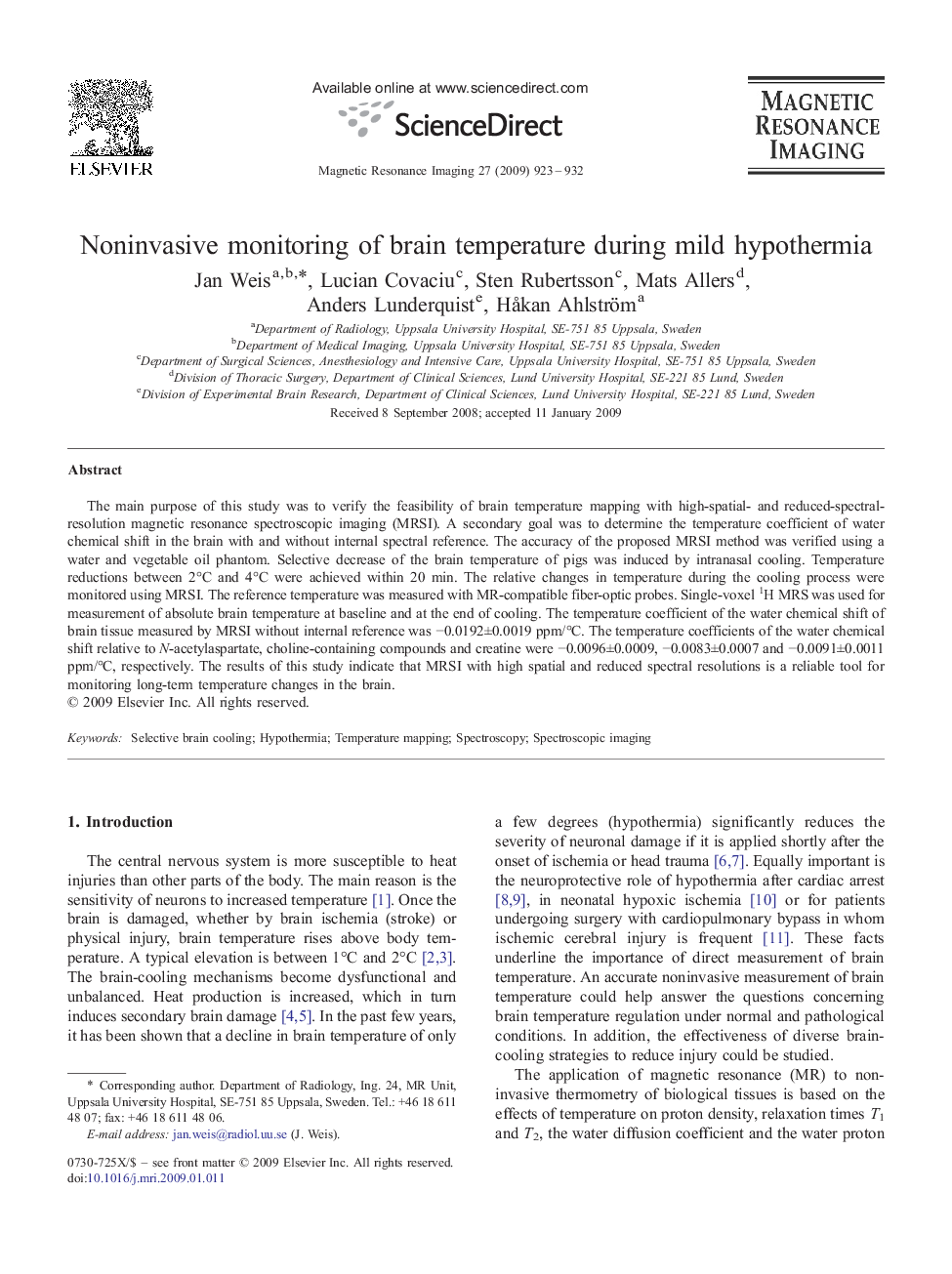| Article ID | Journal | Published Year | Pages | File Type |
|---|---|---|---|---|
| 1807238 | Magnetic Resonance Imaging | 2009 | 10 Pages |
The main purpose of this study was to verify the feasibility of brain temperature mapping with high-spatial- and reduced-spectral-resolution magnetic resonance spectroscopic imaging (MRSI). A secondary goal was to determine the temperature coefficient of water chemical shift in the brain with and without internal spectral reference. The accuracy of the proposed MRSI method was verified using a water and vegetable oil phantom. Selective decrease of the brain temperature of pigs was induced by intranasal cooling. Temperature reductions between 2°C and 4°C were achieved within 20 min. The relative changes in temperature during the cooling process were monitored using MRSI. The reference temperature was measured with MR-compatible fiber-optic probes. Single-voxel 1H MRS was used for measurement of absolute brain temperature at baseline and at the end of cooling. The temperature coefficient of the water chemical shift of brain tissue measured by MRSI without internal reference was −0.0192±0.0019 ppm/°C. The temperature coefficients of the water chemical shift relative to N-acetylaspartate, choline-containing compounds and creatine were −0.0096±0.0009, −0.0083±0.0007 and −0.0091±0.0011 ppm/°C, respectively. The results of this study indicate that MRSI with high spatial and reduced spectral resolutions is a reliable tool for monitoring long-term temperature changes in the brain.
